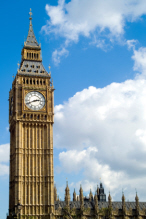House of Lords rejects compulsory mayors for combined authorities
- Details
 The House of Lords has defeated the government over its proposal to demand elected mayors as part of devolution deals.
The House of Lords has defeated the government over its proposal to demand elected mayors as part of devolution deals.
In a debate this week on the Cities and Local Government Devolution Bill, peers passed an amendment which said that a secretary of state for communities and local government could not use their power to make an order creating an elected mayoralty “as a condition for agreeing to the transfer of local authority or public authority functions”.
Opposition peers carried the amendment by 240 votes to 175, and the government must now decide whether to try to overturn it in the House of Commons.
Labour’s Lord McKenzie of Luton said proposing the amendment: "It seems somewhat strange that the Government are rightly prepared to pass responsibility, power and resources on a very substantial scale to combined authorities and trust them to deliver on vital parts of the Government’s agenda, especially the need for growth, yet seek to straitjacket them on the issue of the directly elected mayor.
“It seems out of balance with the whole thrust of what devolution is all about. The whole approach is characterised by the Government as a willingness and eagerness to listen to what local authorities propose and to respond accordingly. The insistence on directly elected mayors jars with this.”
The issue arose because leaders of the 10 councils in Greater Manchester last year accepted an elected mayor - though with limited powers - as part of the widest devolution deal yet negotiated between local and central government.
Ministers have said that they want elected mayors created in other cases of similar deals, though would not insist on them in place that have devolution on a lesser scale.
The position outside cities is unclear, as county areas are now pressing for their own devolution packages.
A further complication is that the Conservatives insisted as part of the 2010 Coalition Agreement on referendums in 12 major cities on creating elected mayors, all of which except Bristol voted ’no’, creating a perception that mayors are now being forced on places that voted to reject them.
Defending elected mayors, former Tory deputy prime minister Lord Heseltine said: “To me, one of the attractive ideas of a mayor is that it will be a ladder up which budding national leaders will climb on their way to [the House of Commons], or it will be the opportunity for people who have served at the highest levels of government to serve their local communities with all the experience that they have gained in government, having ceased to be members of a cabinet.
“That is an interesting evolution of our constitutional practices that would enrich the political process.”
He added: “Anyone who has looked at this legislation will know that this is not the creation of a dictator. The checks and balances that exist within the negotiation that has been concluded with Manchester, for example, are very clear.”
Legal Director - Government and Public Sector
Deputy Director Legal and Democratic Services
Legal Adviser
Regulatory/Litigation Lawyer
Governance Lawyer
Locums
Poll


















